Using Standard SQL ONLY this query demonstrates how you can ODER BY either the numbers found to be contained at the Beginning or the End of the string. The query also shows how you could then look at the remaining 'inner' portion of the string to see if there are any numbers contained there. Knowing if there are numbers contained within the string could be useful if further processing is necessary.
WITH stringNumberData AS
( /* Build up Fake data with Numbers at the Beginning, End and Middle of the string */
SELECT 1 AS uniqueKey, 'ABC' AS NumberFromString UNION ALL
SELECT 2 AS uniqueKey, 'ABC1' AS NumberFromString UNION ALL
SELECT 3 AS uniqueKey, 'ABC2' AS NumberFromString UNION ALL
SELECT 4 AS uniqueKey, 'ABC3' AS NumberFromString UNION ALL
SELECT 5 AS uniqueKey, 'ABC10' AS NumberFromString UNION ALL
SELECT 6 AS uniqueKey, 'ABC11' AS NumberFromString UNION ALL
SELECT 7 AS uniqueKey, 'ABC12' AS NumberFromString UNION ALL
SELECT 8 AS uniqueKey, 'ABC20' AS NumberFromString UNION ALL
SELECT 9 AS uniqueKey, 'ABC21' AS NumberFromString UNION ALL
SELECT 10 AS uniqueKey, 'ABC22' AS NumberFromString UNION ALL
SELECT 11 AS uniqueKey, 'ABC30' AS NumberFromString UNION ALL
SELECT 12 AS uniqueKey, 'ABC31' AS NumberFromString UNION ALL
SELECT 13 AS uniqueKey, 'ABC32' AS NumberFromString UNION ALL
SELECT 14 AS uniqueKey, '1ABC' AS NumberFromString UNION ALL
SELECT 15 AS uniqueKey, '2ABC' AS NumberFromString UNION ALL
SELECT 16 AS uniqueKey, '3ABC' AS NumberFromString UNION ALL
SELECT 17 AS uniqueKey, '10ABC' AS NumberFromString UNION ALL
SELECT 18 AS uniqueKey, '11BC' AS NumberFromString UNION ALL
SELECT 19 AS uniqueKey, '12ABC' AS NumberFromString UNION ALL
SELECT 20 AS uniqueKey, '10ABC18' AS NumberFromString UNION ALL
SELECT 21 AS uniqueKey, '11BC52' AS NumberFromString UNION ALL
SELECT 22 AS uniqueKey, '12ABC42' AS NumberFromString UNION ALL
SELECT 23 AS uniqueKey, 'A3BC18' AS NumberFromString UNION ALL
SELECT 24 AS uniqueKey, 'B3C52' AS NumberFromString UNION ALL
SELECT 25 AS uniqueKey, '12AB3C' AS NumberFromString UNION ALL
SELECT 26 AS uniqueKey, 'A3BC' AS NumberFromString UNION ALL
SELECT 27 AS uniqueKey, 'AB2C' AS NumberFromString UNION ALL
SELECT 28 AS uniqueKey, 'ABC85D' AS NumberFromString
)
SELECT d.uniqueKey, d.NumberFromString
/* Extract numerical values contained on the LEFT of the String by finding the index of the first non number */
, LEFT(d.NumberFromString, PATINDEX('%[^0-9]%', d.NumberFromString) -1) AS 'Left Numbers Extraction'
/* Extract numerical data contained on the RIGHT of the String */
, RIGHT(d.NumberFromString, PATINDEX('%[^0-9]%', REVERSE(d.NumberFromString)) - 1 ) AS 'Right Numbers Extraction'
/* The below checks inside the Inner string to determine if numbers exists within it. Could be used for further processing if further extraction is necessary */
, PATINDEX('%[0-9]%',
SUBSTRING(d.NumberFromString /*, Start Pos, Length to Extract) */
, PATINDEX('%[^0-9]%', d.NumberFromString) /* Start Pos is first left non number */
/* The below obtains the length of the Inner String so it can be extracted */
, LEN(d.NumberFromString) - ((PATINDEX('%[^0-9]%', d.NumberFromString) -1 )) - (PATINDEX('%[^0-9]%', REVERSE(d.NumberFromString)) -1) /* (String Length) - (LEFT Numbers) - (RIGHT Numbers) */
)) AS innerNumExists
/* The two lines below tell us if there exists a number at the Beginning and/or End of the string */
, PATINDEX('%[0-9]%', LEFT(d.NumberFromString, 1)) AS leftNumExists
, PATINDEX('%[0-9]%', RIGHT(d.NumberFromString, 1)) AS rightNumExists
/* Locates and returns the index of the very first number located in the string from Left to Right */
, PATINDEX('%[^0-9]%', d.NumberFromString) AS firstLeftNonNum_index
/* Locates and returns the index of the very first number located in the string from Right to Left */
, LEN(d.NumberFromString) - (PATINDEX('%[^0-9]%', REVERSE(d.NumberFromString)) -1 ) AS firstRightNonNum_index
/* Get the length of the numbers existing from Right to Left up to the first non numeric character */
, PATINDEX('%[^0-9]%', REVERSE(d.NumberFromString)) -1 AS rightStringLen
FROM stringNumberData d
ORDER BY
/* Ordering first by numbers found on the LEFT of the string */
CAST(LEFT(d.NumberFromString, PATINDEX('%[^0-9]%', d.NumberFromString) -1) AS INT )
/* Ordering second by numbers found on the RIGHT of the string */
, CAST(RIGHT(d.NumberFromString, PATINDEX('%[^0-9]%', REVERSE(d.NumberFromString)) - 1 ) AS INT )
;

